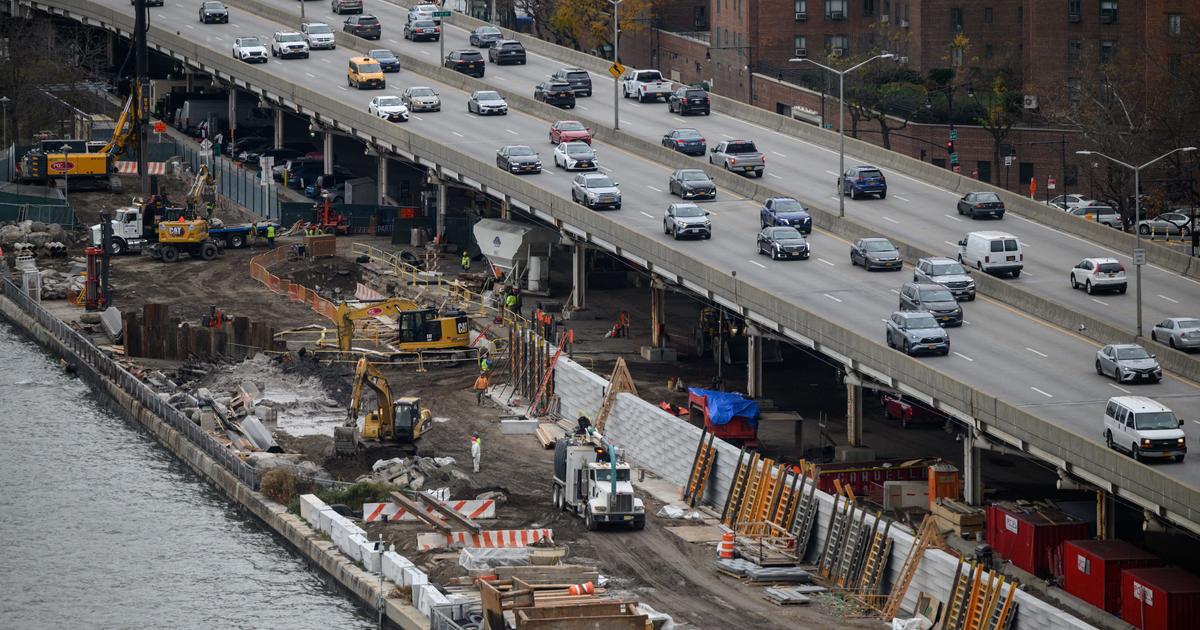With COVID-19 Still A Big Problem Nationwide, Large Percentage Of Nurses Struggling With Burnout
NEW YORK (CBSNewYork) -- Nursing has always been a high-stress career, and that was before the COVID-19 pandemic hit.
A survey during the pandemic found 62% of intensive care nurses are burned out.
And as CBS2's Dr. Max Gomez reported Monday, now we're seeing the long-term impact of that over-work.
For seven years, Paulette Rangel worked overnights as an ICU nurse in Phoenix. When COVID reared its ugly head last year, Rangel and her co-workers stepped up.
"Some nurses were working four, five, six days a week, 12-hour shifts," Rangel said.
COVID VACCINE
- New York State book online here or call 1-833-NYS-4-VAX
- New York City book online here or call 877-VAX-4NYC
- Track NYC vaccinations by zip code
- Nassau County more info here
- Suffolk County more info here
- Westchester County more info here
- New Jersey book online here or call 1-855-568-0545
- Connecticut book online here
Rangel said her training gave her the medical skills to respond to a pandemic, but did not prepare her for the emotional toll.
"It takes a lot out of you. We wanted to be there for our patients, but, you know, when we're running on fumes, it's hard to do that," Rangel said.
Back home after her shifts, Rangel's distress was obvious.
"I would go straight to my room. Talking to my husband, I was just telling him, 'I really don't want to get you guys sick,'" Rangel said.
After trying counseling and anti-depressants, Rangel switched to a job in community health, seeing healthier patients during daytime hours.
"The problems that we see in nursing now are not new. It's that high level that we had before COVID that has made it really out of hand now," said Linda Aiken of the University of Pennsylvania School of Nursing.
Aiken teaches and studies nursing.
"The problem is that we don't have enough funded, permanent, full-time positions for nurses in the settings where they're needed, namely hospitals, nursing homes and schools," Aiken said.
CORONAVIRUS PANDEMIC
- Vaccination Sites In New York City | Call 877-VAX-4NYC
- Track NYC Vaccinations By Zip Code
- Find NYC Testing Site Near You
- Check NYC Testing Wait Times
- CDC'S COVID Vaccine FAQ
- CDC's COVID Tracking Map By County
- Resources: Help With Unemployment, Hunger, Mental Health & More
- Remote Learning Tools For Students And Parents At Home
- Complete Coronavirus Coverage
There are no federal standards on patient-to-nurse ratios. California is the only state that has set minimum staffing standards. Aiken said the workload varies widely, with nurses in some hospitals caring for as many as 10 patients.
Some studies have shown that as patient load goes up per nurse, so does the risk of dying in the hospital, even from routine surgical procedures.
Christopher Hayes is a prime example of the issue. When COVID struck, he hit the road as a travel nurse. As he rotated through four hospitals in Texas and Oklahoma, the staffing shortage wore on him, but not as much as, "Getting used to the amount of people that were dying from COVID, and then talking to their family members after they died," he said.
One thing that needs to be clear -- you can go to the best hospitals in the country, and we have plenty of them in the Tri-State Area. They may have the best doctors and latest technology available, but your medical outcome and how you feel about your hospital stay will depend tremendously on caring, dedicated and reasonably staffed nursing.



